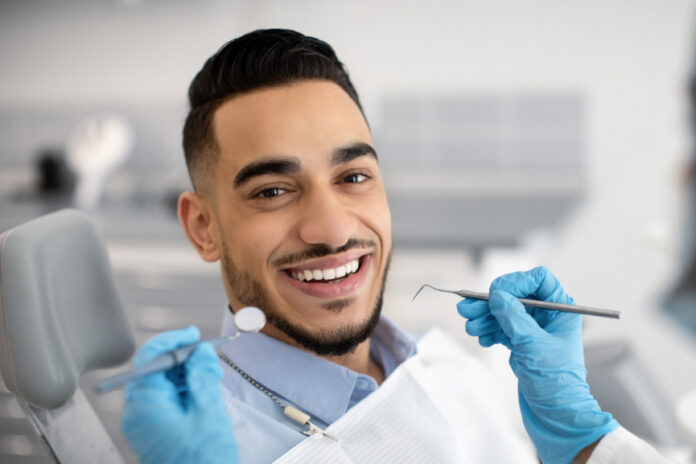Dr Reham Ma’ani, Dental & Oral Surgeon
Everyone deserves the right to good health and access to healthcare, including dental services.
For people with disabilities, this means dental care should be just as easy to access and just as high-quality as it is for anyone else.
It is important to involve people with disabilities in shaping healthcare services. This ensures that treatments, facilities and information meet their needs.
Dental care
Dental care should be based on a person’s abilities, not their disabilities.
People with physical disabilities should be able to receive dental treatment to the same standard as everyone else, ensuring they feel respected and well-cared for.
Access to dental practices
A big challenge for people with disabilities is getting to and into dental appointments.
With 100 million wheelchair users worldwide, it’s important that dental practices are accessible.
If you are looking for practices that have wheelchair-friendly entrances, ensure that accessible parking and ground-floor treatment rooms are available.
Before the appointment, it’s a good idea to give the dental practice a call to make sure they can accommodate . Many clinics have specially designed surgeries for people with mobility challenges, so it’s always worth asking.
Supporting oral care at home
Carers and family members also play a vital role in helping people with challenges maintain their oral health.
For people who struggle to use their arms or hands, brushing teeth can be difficult. However, it’s essential to reach all areas of the mouth for effective cleaning.
A small or medium-sized toothbrush with soft bristles is usually recommended. There are also special grips that can be attached to manual toothbrushes to make them easier to hold.
For those with limited hand movement, electric toothbrushes can be especially helpful.
Brushing teeth
If a person can’t brush their teeth independently, a caregiver can help by sitting behind the wheelchair and gently hold their head while brushing.
Another tip which helps is to lock the wheels of the chair and tilt it slightly toward the lap of the caregiver for stability. Alternatively, standing behind them or leaning against a wall can also give better support.
It’s also worth remembering that the bathroom isn’t the only place to brush teeth.
If it’s hard to get the person to the bathroom, the care giver can brush their teeth in the kitchen or living room—wherever is easiest and most comfortable.
By ensuring that dental care is accessible and providing the right support at home, we can help people with disabilities maintain their oral health and feel confident about their smiles.
You can contact Dr Reham Ma’ani at [email protected]






